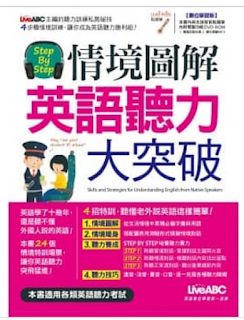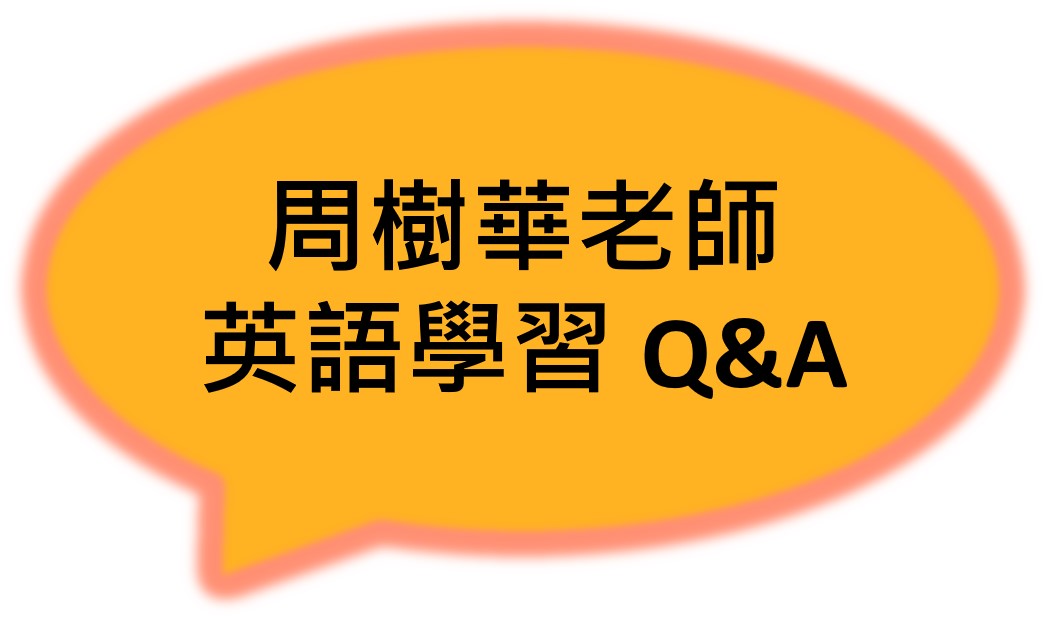'Parasite' Reflects Deepening Social Divide in South Korea
VOA News|Arts & Culture
February 10, 2020 06:45 AM (source)
'Parasite' Reflects Deepening Social Divide in South Korea
《寄生上流》反映南韓社會日漸深化的分歧
February 10, 2020 06:45 AM
Reuters
The black comedy "Parasite" is a tale of two South Korean families - the wealthy Parks and the poor Kims - mirroring the deepening inequality in Asia's fourth-largest economy.
The film made history as the first non-English language movie to win the Oscar for best picture on Sunday, prompting South Korean social media to erupt in celebration.
The film's message resonated with many South Koreans who identify themselves as "dirt spoons," those born to low-income families who have all but given up on owning a decent house or climbing the social ladder, as opposed to "gold spoons," who are from better-off families.
While inequality in South Korea is not necessarily worse than many other countries, the concept has exploded onto the political scene in recent years amid runaway home prices and a stagnating economy, undermining support for President Moon Jae-in.
Moon, in his congratulatory message, said "Parasite" had "moved the hearts of people around the world with a most uniquely Korean story."
But the film's message is a sharp critique of South Korea's modern society, and director Bong Joon-ho turned to many familiar scenes around Seoul to highlight the divide between the city's haves and have-nots.
Across South Korea the divide is visible as some of the old neighborhoods of crumbling brick slums contrast with the gleaming high-life of Seoul's more swanky spots.
The film uses many of those visual cues to illustrate the competition going on in society, and the sometimes "parasitic" relationships between the rich and poor.
"The uncomfortable exchanges in the movie sparked mixed feelings by hitting a sore spot in society and pitting the rich against the poor," said Kim Chang-hwan, a 35-year-old Seoul resident.
Fake Diploma
South Korea's economic inequality is higher than many members of the Organisation for Economic Cooperation and Development (OECD), on par with Britain and Latvia, and has worsened in recent years.
Still, its Gini coefficient, a commonly used measure of how evenly income is distributed across the population, is better than places such as the United States, according to the OECD.
But after years of economic growth that powered the country's recovery from the 1950-53 Korean War, South Korean's economic future is more uncertain, causing growing concerns for many.
A 2019 survey by the government affiliated Korea Institute for Health and Social Affairs found more than 85% of South Korean respondents felt there were "very big" income gaps in society and people needed to be from a wealthy family in order to be successful.
Young people have become especially pessimistic amid a highly competitive education system and job market.
That has sent support for Moon plummeting to as low as 45% in early February, as his younger supporters express dissatisfaction with their economic prospects. While Moon is constitutionally barred from running again, a key parliamentary election is due to be held in April, posing a test for his ruling party.
In "Parasite," one character fakes a diploma for her brother to get a job as a tutor for a rich family.
The scene reminded some South Koreans of an ongoing scandal that led to the resignation of Justice Minister Cho Kuk.
Cho resigned in December and is being prosecuted for falsifying documents regarding family investments and efforts to gain university admissions for his children. He has denied wrongdoing.
"Parasite's win is a really great thing, but it was bitter to see the father impressed with his children's forgery skills and their plans to get the jobs," one Twitter user wrote, referring to one of the main characters.
The scandal struck a chord in South Korea where young people, who compete furiously through school and university, are increasingly finding themselves scrambling for a dwindling number of positions in a slack job market, in a system they see as plagued by systemic unfairness and biased in favor of the elite.
The issue was a particular disappointment to the young people who supported Moon and his party when he became president on a platform of cleaning out corruption in the government and business.
黑色喜劇片《寄生上流》(Parasite)劇情描述兩個南韓家庭—富裕朴家與貧窮金家—的故事。它反映(mirror)出亞洲(Asia)第四大經濟國(社會上)日漸深化的不平等現象。
這部作品在週日(編按:2020 年 2 月 9 日)創下紀錄,成為首部贏得奧斯卡(Oscar)最佳影片獎的非英語(即外語)影片。消息一出,南韓的社群媒體(social media)頓時湧現(erupt)一片慶祝之聲。
許多視自己為含著「土湯匙(dirt spoons)」出生的南韓民眾對這部電影所傳達的訊息產生共鳴(resonate)。他們生於低收入戶家庭,幾乎(all but)要放棄擁有像樣的(decent)房屋和攀登社會階級的階梯。與他們相反,來自較為優渥家庭的人,則被形容為含著「金湯匙(gold spoons)」出生。
儘管南韓(South Korea)社會的不平等現象相較許多國家來說,不一定顯得較為嚴重,但是這個觀念近年來已延伸到政治舞臺上。失控的(runaway)房價和停滯不前的(stagnate)經濟損害了民眾對南韓總統文在寅(Moon Jae-in)的支持。
文在寅在他的恭賀訊息中表示:「《寄生上流》透過獨特的韓國故事打動(moved)世界各地人們的心。」
儘管如此,這部作品傳遞出對南韓現代社會的尖銳批評。導演奉俊昊(Bong Joon-ho)藉由首爾(Seoul)周邊許多熟悉的場景來凸顯這座城市所擁有與所沒有之間的分歧。
這種分歧在南韓各地顯而易見,老街坊中剝落磚瓦的貧民窟與首爾較為時髦奢華的(swanky)場所形成對比。
影片運用許多視覺線索來描繪社會上正在發生的競爭,以及富人與窮人之間有時「寄生」的關係。
「電影裡那些社會遭到重創、富人對抗窮人等令人不安的交流讓人百感交集。」來自首爾的 35 歲居民金昌煥(Kim Chang-hwan,音譯)說道。
假文憑
南韓的經濟不平等比例較許多經濟暨合作發展組織(Organisation for Economic Cooperation and Development,簡稱「OECD」)的會員國來得高,和英國(Britain)及拉脫維亞(Latvia)不相上下(on par with),且在近年有惡化的現象。
儘管如此,根據經濟暨合作發展組織的報告,南韓的吉尼係數(Gini coefficient)仍比美國(United States)等地要好。此係數通常用於測量收入在整體人口當中平均分配的比例。
南韓多年來的經濟成長推動了該國在 1950-53 年韓戰(Korean War)之後的復甦。不過,該國未來的經濟走向變得飄忽,導致越來越多人為此感到擔憂。
政府附屬韓國健康與社會研究院(Korea Institute for Health and Social Affairs)從一份 2019 年的問卷發現,超過 85% 的南韓問卷答覆者認為社會中存在著「非常大的」收入差異,且人們需要來自富裕的家庭才有機會成功。
年輕人在競爭力高的教育系統及就業市場裡變得特別悲觀(pessimistic)。
文在寅的支持率在二月初(編按:2020 年)急速下跌(plummet)至 45 %。年輕一輩的支持者表達他們對經濟前景(prospect)的不滿。儘管文在寅持續被防止(bar)再次參選,一場關鍵的議會選舉即將在四月舉行,成為執政黨(ruling party)的一項測驗。
《寄生上流》片中,有一個角色為了讓她的哥哥成為有錢人家的家教,替哥哥偽造了文憑。
這一幕讓某些南韓民眾聯想到一件導致南韓前法務部長曹國(Cho Kuk)下臺的醜聞(scandal)。
曹國於十二月(編按:2019 年)辭職(resign),並因偽造家庭投資文件及設法為小孩取得大學入學許可而遭起訴(prosecute)。他否認涉案。
「《寄生上流》的脫穎而出是一件很棒的事,但是看到劇中父親為小孩偽造(forgery)文憑的技術感到驕傲,以及他們策畫得到那份工作的片段令人痛苦。」一位推特(Twitter)使用者指劇中的一位主角寫到。
這起醜聞在南韓引起共鳴(strike a chord)。越來越多於就學期間用盡全力(furiously)競爭的南韓年輕人發現,自己正在日漸稀少的就業市場中爭奪職缺。在他們眼中,這些煎熬(plague)的源頭來自系統性不公平(systemic unfairness)及偏愛(bias)精英的體制。
這個議題讓當初支持文在寅及其政黨的年輕人感到特別失望。文在寅當時在掃蕩政府及企業腐敗的基礎上成為總統。
Language Notes
註 1: mirror 於本文為動詞,意指「反映」;本字也可作名詞,意指「鏡子」
註 2: runaway 於本文為形容詞,意指「 失去控制的」;本字也可作名詞,意指「出逃者,逃脫者」;注意重音在第 1 音節
註 3: prospect 於本文為名詞,意指「前景;展望;設想」;本字也可作動詞,意指「探勘」
註 4: bar 於本文為動詞,意指「阻擋,阻撓;防止,禁止」;本字也可作名詞,意指「鐵柵欄;條狀物」
註 5: furiously 於本文指「用盡全力地,拚命地」;本字也常指「大發雷霆」;由形容詞 "furious" 與字尾 "-ly" 組成;注意重音在第 1 音節
註 6: plague 於本文為動詞,意指「不斷困擾;折磨;使受煎熬」;本字也可作名詞,意指「瘟疫」
BACK TO CONTENT
Check your comprehension!
Choose the BEST answer to each of the questions below. After you finish, highlight the parentheses to reveal the hidden answers.
1. ( A ) What can be inferred from the article?
(A) The divide between the rich and the poor in South Korea continues to grow.
(B) More foreign films will compete in the next Oscar Award.
(C) South Koreans were surprised to learn of the social situation in Seoul.
(D) Government officials thought "Parasite" was an exaggerated movie.
2. ( A ) According to the article, what do South Koreans feel towards former Justice Minister Cho Kuk?
(A) Anger
(B) Appreciation
(C) Support
(D) Sympathy
3. ( C ) Which of the following statements is INCORRECT?
(A) South Koreans are satisfied with President Moon and his ruling party.
(B) President Moon's approval rate is down to under 50%.
(C) "Parasite" told a South Korean story of the wealthy Kims and the poor Parks.
(D) In "Parasite," one of the characters got his tutoring job with a fake degree.
編譯:外語教學暨資源中心 編輯小組
|

 Read more on VOA.
Read more on VOA.







